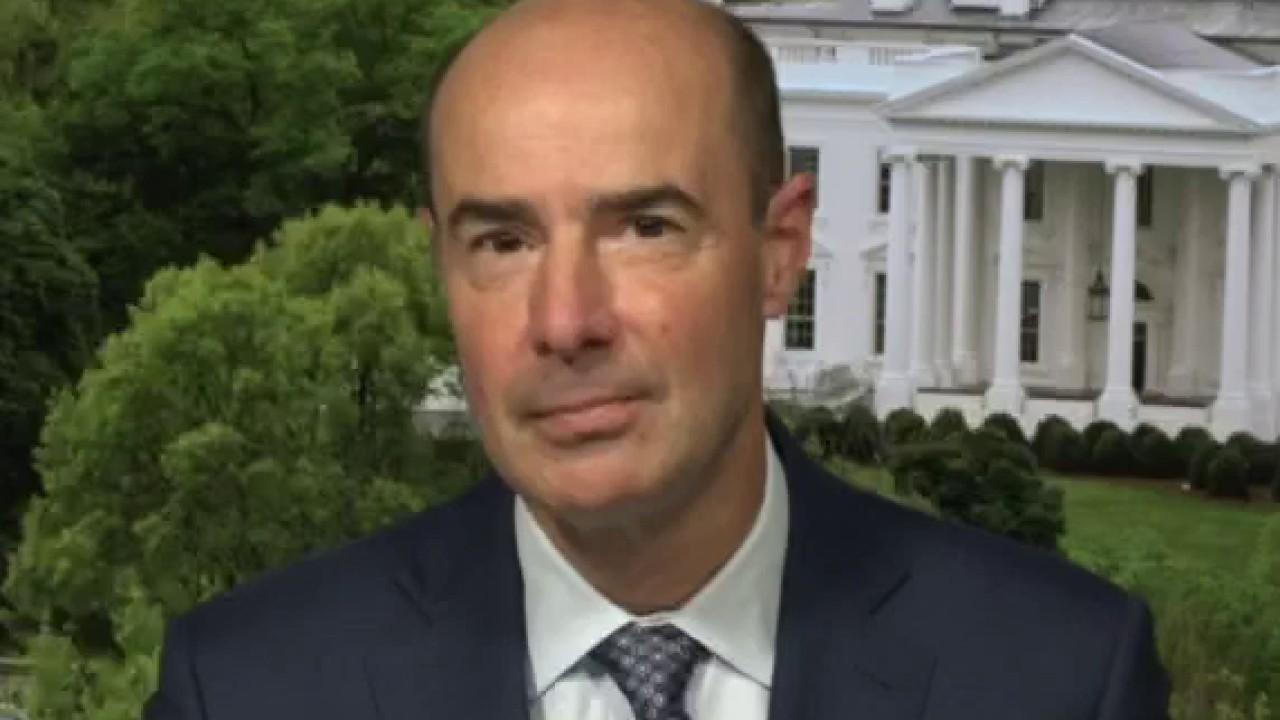US Labor Secretary Eugene Scalia argues that Senate Minority Leader Chuck Schumer’s proposal to reinstate the CARES Act to boost $ 600 weekly unemployment “is not a serious proposition.”
The Labor Department on Wednesday published its final rule explaining who an independent contractor is, instead of Officer Covered by the Fair Labor Standards Act, or FLSA.
By harmonizing and simplifying principles, courts have used to determine when Factor An independent contractor, the departmental rule more effectively enforces federal wage and hour requirements. It also respects the long-standing American tradition of being your own boss.
This tradition has gained prominence in recent times with the rise Gig economyWhich provides many Americans with greater opportunity, flexibility, and control over their working lives. But in the past few years, liberal activists and politicians have attempted to drastically reduce the recognition of independent contractors.
At the forefront of this effort was AB-5, a California law Enacted in 2019. The law requires companies to change the way they classify many of their business relationships, tilting schedules heavily toward identifying workers as employees rather than as independent contractors.
It has generated a backlash, from companies that provide opportunities through the independent contractor model, such as joint carriers, and from workers who have shaped their lives around being themselves working.
The Ministry’s clear and simple test of independent contractor status will help companies, workers, courts, and Ministry of Labor employees to confirm the relationship between workers and their substitutes more easily.
This workers’ frustration came through the comments management received last year loud and clear when we proposed the independent contractor rule.
One worker described the AB-5 as “horrific” while another said it “almost ruined my livelihood.” An independent translator reported losing clients due to the legislation. One event organizer told how she was able to care for a sick parent through the flexibility of independent contract work, and said California residents “struggle” under the new law.
In the face of this turmoil, the state legislature has reintroduced a bill that includes dozens of excerpts from AB-5 for a range of professions.
Then in November, California voters approved Proposition 22, a ballot initiative that categorizes drivers for app-based carriers and delivery companies as independent contractors, while requiring app companies to give these workers certain benefits.
California residents’ disavowal of AB-5 reflects the value many workers place on the independence, flexibility, and entrepreneurial opportunity that a freelance employment contract can provide.
This view has been expressed in numerous comments submitted to management in response to our proposed rule.
Why the Giant Economy is So Popular: Americans love sideways crowds
A freelance writer with a disability said that freelance work “significantly improved” her financial security and her mental and physical health.
Single mothers emphasized the importance of flexibility to balance work and family.
Other commentators talked about their ability to control when and how they work and for them.
The administration’s final rule released Wednesday maintains independent contractor status under the FLSA, so many Americans who prefer to work by themselves can continue to do so.
Our ruling comes nearly 60 years after the Supreme Court addressed the matter. Since then, sometimes divergent court decisions, and Labor Department guidelines issued without public intervention, have left the criteria for identifying independent contractors unclear. As one small business owner told us, “We want to comply but we need guidelines that allow us to know how to comply.”
Get your FOX business on the go by clicking here
Our rule states that guidance, clarification, and alignment of principles have been used by courts for decades to determine who is “an employee” under FLSA.
The rule asks whether the worker relies on a company or organization for the opportunity to work, or if he is essentially working on the business for himself. If she is the first, she is an employee; If it is the latter, an independent contractor.
To reach this difference, our base focuses mainly on who controls the business, and whether the worker has an opportunity for profit or loss resulting from her initiative or investment. Other factors considered by the courts could also play a role.
Crucially, our rule does not redraw the boundaries for reclassifying many workers as employees, as AB-5 did.
We respect the interest of millions of Americans to be their boss.
Click here to read more about FOX BUSINESS
Of course, companies cannot abdicate their responsibilities under labor law in order to improve services by incorrectly classifying workers as not – our rules protect against that as well, and management will continue to enforce the law vigorously against employers who violate the FLSA law, such as mirroring a record This administration.
The Ministry’s clear and simple test of independent contractor status will help companies, workers, courts, and Ministry of Labor employees to confirm the relationship between workers and their substitutes more easily. As policymakers note the confusion and controversy caused by AB-5, our base provides an alternative model for ensuring that employees are properly classified, while respecting the desire of many Americans for the independence and entrepreneurship that comes with other work arrangements.
Eugene Scalia is the US Secretary of Labor.

“Appassionato di alcol. Piantagrane. Introverso. Studente. Amante dei social media. Ninja del web. Fan del bacon. Lettore”.

